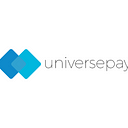Top Peer-To-Peer Payment Apps: Pros and Cons
Money transfer apps make our lives easier. Using them allows sending money without any obstacles. What is more, international transfers can be done much faster and safer, compared to using traditional bank accounts. Peer-to peer payment apps are also more secure, considering the fact that third-party providers are not required for international payments. In addition, P2P payments apps are easy to acquire. In order to send money, users will be asked to provide simple information, like phone number, email address or username of another person. Here are the best P2P services, their benefits and drawbacks.
PayPal
P2P app used for personal money transfers, e-commerce payments and online purchases. In order to use it, bank accounts, credit/debit cards are required.
Benefits:
- High transfer limits
User can send up to $60,000 via PayPal. However, the amount of money sent in one transaction can be limited to $10,000.
- Variety of payment options
PayPal is integrated with many online retailers and allows users to buy and sell online.
Drawbacks:
- Fee to send money with debit/credit card or PayPal credit
The only way to send money without fees is via a linked bank account or a PayPal balance. In other cases, users will be charged 2.9% for transaction.
- Money transferring takes time
Free transfers usually take from one to five days. If the user is not ready to wait, PayPal charges 1% fee to send money immediately.
Venmo
Peer-to-peer payment app, owned by PayPal, but has some other functionalities. Venmo allows sending money using bank accounts, credit cards or a Venmo balance.
Benefits:
- Free debit card offered
Users have an option to order their own debit card for free. A Venmo card also gives the possibility to receive a cashback from certain retailers.
- Major user base
Taking into an account the fact that around 40 million people use Venmo, it may be reasonable to go cashless, and start sending and receiving money with this service.
Drawbacks:
- Fee for instant cash transfers
Venmo charges 1% for instant transferring of Venmo funds to a bank account. Otherwise, users will need to wait a couple of days to receive money without extra charges.
- Fee for sending money with credit card
Users will be charged 3% of the total amount in order to send money using a credit card.
Cash App
Allows people to send money using a debit/credit card or their Cash App balance. This payment service also provides an optional debit card — Cash Card.
Benefits:
- Can be used to invest in stocks, buy and sell bitcoin
Investing in stocks and/or purchasing and selling bitcoin, gives the possibility to earn money through the app.
- Free debit card
Cash App provides an optional debit card, that allows sending money from a Cash App balance to different retailers. Drawbacks:
- Fee for instant deposits
Cash App can charge 1.5% for instant cash deposits.
- Fee for sending money via credit card
If a person uses a credit card for money transferring Cash App charges 3% for this process.
Taking into consideration all the advantages and disadvantages of each peer-to- peer payment app, it can be easier to decide which is the most convenient for you or your business. And if you still have any questions about payment options, feel free to contact our team by email info@universepay.eu or visit our web-site for more information.
